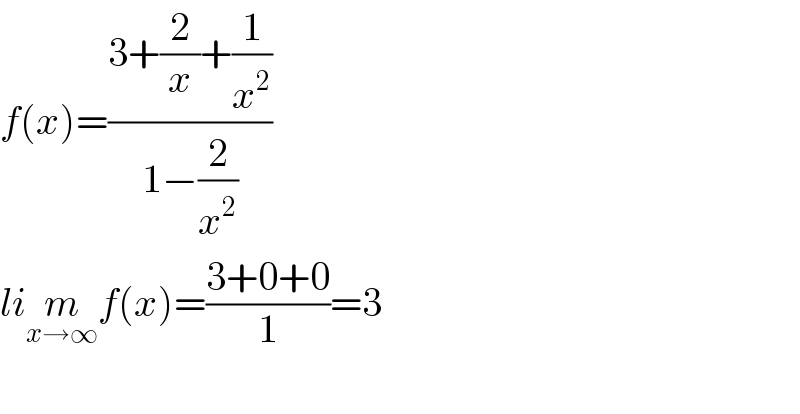Question Number 121577 by oustmuchiya@gmail.com last updated on 09/Nov/20

Answered by TANMAY PANACEA last updated on 09/Nov/20

$${f}\left({x}\right)=\frac{\mathrm{3}+\frac{\mathrm{2}}{{x}}+\frac{\mathrm{1}}{{x}^{\mathrm{2}} }}{\mathrm{1}−\frac{\mathrm{2}}{{x}^{\mathrm{2}} }} \\ $$$${li}\underset{{x}\rightarrow\infty} {{m}f}\left({x}\right)=\frac{\mathrm{3}+\mathrm{0}+\mathrm{0}}{\mathrm{1}}=\mathrm{3} \\ $$$$ \\ $$
Answered by TANMAY PANACEA last updated on 09/Nov/20

$${li}\underset{{x}\rightarrow\mathrm{2}\:} {{m}}\:\:\frac{\mathrm{3}×\mathrm{4}+\mathrm{4}+\mathrm{2}}{\mathrm{2}^{\mathrm{2}} −\mathrm{2}}=\frac{\mathrm{18}}{\mathrm{2}}=\mathrm{9} \\ $$
